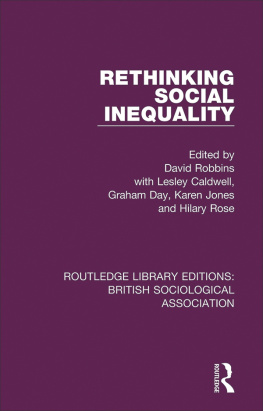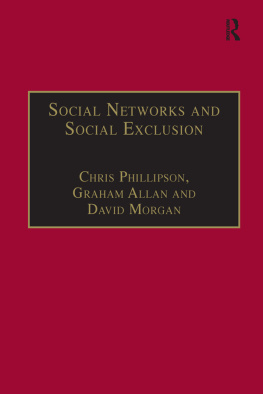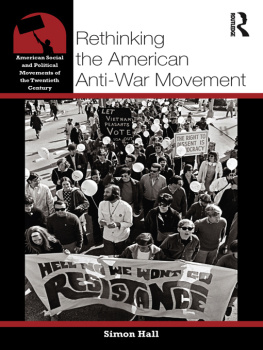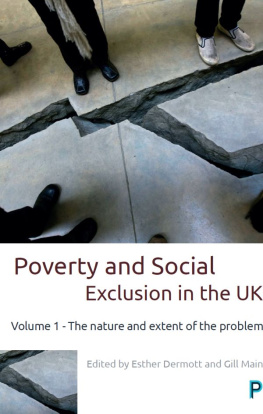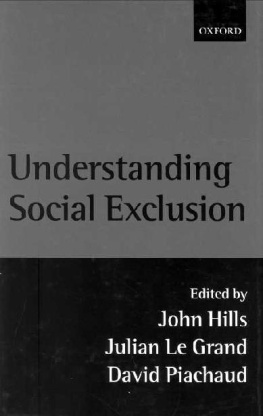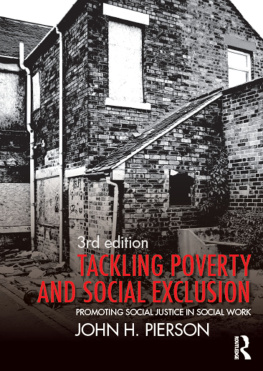SAGE has been part of the global academic community since 1965, supporting high quality research and learning that transforms society and our understanding of individuals, groups, and cultures. SAGE is the independent, innovative, natural home for authors, editors and societies who share our commitment and passion for the social sciences.
Find out more at: www.sagepublications.com

Simon Winlow and Steve Hall 2013
First published 2013
Apart from any fair dealing for the purposes of research or private study, or criticism or review, as permitted under the Copyright, Designs and Patents Act, 1988, this publication may be reproduced, stored or transmitted in any form, or by any means, only with the prior permission in writing of the publishers, or in the case of reprographic reproduction, in accordance with the terms of licences issued by the Copyright Licensing Agency. Enquiries concerning reproduction outside those terms should be sent to the publishers.
Library of Congress Control Number: 2013933560
British Library Cataloguing in Publication data
A catalogue record for this book is available from the British Library
ISBN 978-1-84920-107-0
ISBN 978-1-84920-108-7 (pbk)
SAGE Publications Ltd
1 Olivers Yard
55 City Road
London EC1Y 1SP
SAGE Publications Inc.
2455 Teller Road
Thousand Oaks, California 91320
SAGE Publications India Pvt Ltd
B 1/I 1 Mohan Cooperative Industrial Area
Mathura Road
New Delhi 110 044
SAGE Publications Asia-Pacific Pte Ltd
3 Church Street
#10-04 Samsung Hub
Singapore 049483
Editor: Chris Rojek
Editorial assistant: Gemma Shields
Production editor: Katherine Haw
Proofreader: Rose James
Marketing manager: Michael Ainsley
Cover design: Lisa Harper
Typeset by: C&M Digitals (P) Ltd, Chennai, India
Printed by: Replika Press Pvt Ltd
About the Authors
Simon Winlow is Professor of Criminology at Teesside University, UK. He is the author of Badfellas (Berg, 2001), and co-author of Bouncers (Oxford University Press, 2003), Violent Night (Berg, 2006) and Criminal Identities and Consumer Culture (Willan, 2008). He is also the co-editor of the recently published New Directions in Criminological Theory (Routledge, 2012) and New Directions in Crime and Deviancy (Routledge, 2012).
Steve Hall is Professor of Criminology at Teesside University, UK. He is the co-author of Violent Night (Berg, 2006) and Criminal Identities and Consumer Culture (Willan, 2008), and author of Theorizing Crime and Deviance: A New Perspective (Sage, 2012). With Winlow he is the co-editor of the recently published New Directions in Criminological Theory (Routledge, 2012).
Acknowledgements
We should begin by acknowledging a debt of gratitude to our colleagues in the Centre for Realist Criminology at Teesside University, UK. They have created a lively intellectual environment that has made the problems currently faced by Britains University system a little easier to take. We would also like to thank Paul Crawshaw for his ongoing support and the skill and dedication he has shown in his direction of the Social Futures Institute at the university.
In the broader academic community we have been lucky enough to benefit from the support, encouragement and friendship of a number of hugely talented intellectuals. Among this group, we are particularly grateful to Georgios Antonopoulos, Rowland Atkinson, Pat Carlen, Elliot Currie, Walter DeKeseredy, Mark Featherstone, Jeff Ferrell, Keith Hayward, Simon Hallsworth, Dick Hobbs, John Lea, Bob Lilly, Ronnie Lippens, David Moxon, Georgios Papanicolaou, Larry Ray, Robert Reiner, Chris Rojek, Barry Smart, Colin Sumner, Steve Tombs, Sandra Walklate, Colin Webster, David Wilson and Majid Yar. Not that everyone on this list agrees with everything we say, but the fact that some disagree or only partially agree with us yet still support the dissemination of our arguments shows the true spirit of intellectual inquiry. We would also like to thank numerous postgraduate students who over the years have given us the constant stimulation and feedback we needed to develop our work.
Simon Winlow would like to thank Sara and Gabriel for everything.
Steve Hall would like to thank his family Chrissie, Chris and Alex for putting up with him and his old mate Mike Randall for half a lifetime of encouragement.
Introduction:
Postcrash Social Exclusion
I muse upon my countrys ills
The tempest bursting from the waste of Time
On the Worlds fairest hope linked with mans foulest crime.
Herman Melville, Misgivings
Things cannot go on as they are
We began writing this book in 2012, four years into the most severe financial crash in living memory. Our exposure to the profound human consequences of this event and its aftermath via daily media coverage but also via our ongoing empirical work in areas of permanent recession in the north of England (Winlow, 2001; Winlow and Hall, 2006; Hall et al., 2008) compelled us to reconsider the books structure and content. The fallout from liberal capitalisms latest spectacular convulsion dragged the system itself from its background location in the analysis of social exclusion to centre stage. In many respects this book can be read as a preliminary theoretical analysis of liberal capitalisms social consequences, based in England, but, to a large extent, generalisable throughout the West. The analysis is also embedded in a global process. The huge growth in surplus populations in global cities (see Davis, 2007), when understood in the context of imminent crises in water, food, energy, finance and the generation and distribution of money (Heinberg, 2011; Keen, 2011; Hall, 2012b) and the permanent inability of capitalism to absorb these populations into its networks of production, exchange and consumption, makes social exclusion one of the most pressing issues we face at this point in our history. A sophisticated and updated analysis of social exclusion is therefore essential, and, with this book, we hope to make a small contribution to this endeavour.
In ways we hope will become clear, excluded populations, the conditions in which they find themselves and their cultural expressions should not be considered external to or separate from the organising logic of global neoliberalism. The stark realities of life in the slums of Jakarta or Rio are as indicative of the reality of contemporary global capitalism as life in the boardrooms of Wall Street, and the same might be said of the virtual implosion of state governance in the Congo or Somalia. We also believe that the considerable harms of social and economic marginality in the West, when placed alongside the apparent inability of contemporary liberal capitalism to provide secure and civilised forms of employment for former working-class populations, represent a serious and enduring problem. Of course these harms tarnish Western liberal democracys preferred image of itself as inclusive, meritocratic, civilised and fair, but the accompanying accumulation of everyday miseries and dissatisfactions and the prevailing sense of







